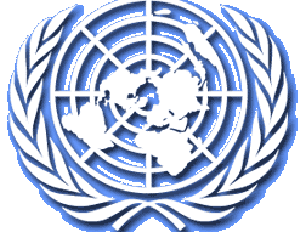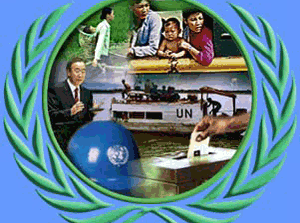Ban Ki-Moon Emphasis the Khurcha Incident in UN Security Council Report, Situation in Abkhazia, Georgia
 Nona Suvariani, Tbilisi
Nona Suvariani, Tbilisi
On July 23rd, 2008 the UN Security Council issued a report on the situation in Abkhazia, Georgia. The international body discussed the Khurcha incident within the framework of this larger report. The authors of the report have presented questions that have not been answered till the present time. Considering the diplomatic tone of the document, which can be interpreted in a number of ways, this begs the question as what do UN experts actually mean between the lines in their statements?
Ban Ki-Moon, the UN Secretary General discussed the incidents that have occurred in Georgian-Abkhazian conflict zone in his report of July 23, 2008. He considered that the situation in the conflict zone has become tensed in recent months. He also criticized that Georgian spy drones flying over Abkhazian airspace and stated that under Paragraph I of the 1994 Moscow agreement that a violation has occurred as a result of these over flights. However, he also criticized the fact of destroying the spy drones and this was not justified under the same 1994 agreement for regulation of the Abkhaz-Georgian conflict.
Ban Ki-Moon also spoke about the Many 21, 2008 snap Georgian parliamentary elections in the report. The UN Mission was observing over the movement of population on Enguri Bridge on the Parliamentary Election Day. They observers stated that opposite to the publicized information in the Georgian media, those ethnic Georgians living in the Gali regions were not prevented from moving in the ceasefire zone in order to take part in parliamentary elections. In fact the Abkhazians closed the ceasefire line on July 1st only after several explosions had occurred, which resulted in several deaths and many injuries.
The UN evaluated the situation as representing “new alarming level of violence” and this determination was based on the explosions in June. However, following a series of bomb blasts in public places in Gagra and Sukhumi on 29 and 30 June 2008, in which 12 people were injured, the Abkhaz de facto authorities, who blamed the incidents on Georgian Special Forces, ordered the closure of the ceasefire line from 1 July.
The UN underscores the fact of Georgian media participating in disagreement between the representatives of the Ministry of Internal Affairs and Commonwealth of Independent States in terms of actively controlling the conflict.
The Khurcha incident remains the most severely evaluated aspect of the report. The Human Rights Centre has been active in discussing the necessity of investigating this incident on Election Day and afterwards with correspondence with OSCE, EU the US State Department and the media.
Studio Reportiori conducted a through journalistic investigation of the incident and produced a shocking documentary that revealed many inconsistencies in the officially reported events of that day. The information revealed by the journalists raised many questions. The facts given in the journalistic investigation contradicted the Georgian government’s official version and raised suspicions of the Georgian side having staged the bombings of the buses as media PR.
Ivar Dale, Aage Borchgrevink, the representatives of the Norwegian Helsinki Committee and the election observers wrote about the incident after visiting the site with UN observers the next day. They demanded that an objective investigation of facts be conducted as soon as possible. They personally visited the village of Khurcha on the second day of the explosion to determine what had happened. Eyewitnesses told them that the Georgian voters were going to cast their votes.
This is what Ivar Dale told on the press conference on June 23, 2008:
“The buses stopped on the Khurcha football pitch. The explosions occurred soon afterwards. It must be noted that the journalists had been on site before the explosion occurred and at the moment that the shooting started the militaries came on the scene. As you know Khurcha is in buffer zone. The nearest military base is on 20 minutes away from the village. How did the armed forces come to the scene so quickly? There is another thing that raised flags with the UN military experts and us.
“The buses were hit with grenades which require a developed level of proficiency and besides these grenades can only be launched from a relative close distance for accuracy.” Ivar Dale considers that the tragic scenario of explosion was prepared for shifting people’s attention away from the parliamentary election to another issue.
Ban Ki-Moon writes in his report: 
“The most serious incident occurred in the Zugdidi area during the period occurred on May 21, the day of the Georgian parliamentary elections, in the vicinity of the village of Khurcha located near the ceasefire line. On that occasion, heavy firing took place around a football field where a number of people, mainly from the Gali district, were requested to gather to be transported by bus to the town of Zugdid in order to vote. The account of the event showed that after an initial burst of small arms fore by the would-be attackers, the people assembled on the field fled; the empty buses were then hit by rocket-propelled grenades and caught fire. Three persons were brought to the hospital, one severely injured. The Georgian security forces arrived rapidly at the scene and fired a protracted period in the direction of the ceasefire line. The entire incident was recorded by the Georgian media. The Georgian side immediately accused the Abkhaz side of being responsible for the incident. However, the Abkhaz side denied any involvement.
The Mission’s investigation into this incident was able to establish the locations from which the attackers fired, approximately 100 metres from the buses, on the Georgian-controlled side of the ceasefire line. While no hard evidence has been found so far regarding the identity of the perpetrators, inconsistencies in the circumstances surrounding the incident, in particular the fact that the incident was filmed in such a way as to suggest that events were anticipated rather than simply recorded as they were happening, require UNOMIG to continue its investigation."
Ban Ki-Moon calls the Abkhazians for supporting UNOMIG in free movement and Georgian side for protecting CIS peacekeeping forces in its zone of responsibility.
Report of the Secretary-General on the situation in
Abkhazia, Georgia



